[First posted in AWOL 29 October 2013, updated 11 August 2025]
Mirabilia: Revista Eletrônica da Antiguidade e Idade Média / Eletronic Journal of Antiquity and Middle Ages
ISSN 1676-5818
 The word Mirabilia in latin is a neutral plural adjective which means "admirable things" or "wonders" and comes from the verb mirare, to regard, look at. Therefore, this name evokes the admirable aspects of the ancient and the medieval times.
The word Mirabilia in latin is a neutral plural adjective which means "admirable things" or "wonders" and comes from the verb mirare, to regard, look at. Therefore, this name evokes the admirable aspects of the ancient and the medieval times.
The Journal Mirablia is an on line publication which provides articles, documents and academic reviews produced by scholars of Ancient and Medieval History from all over the world interested in increase and debate their interests.
This publication is connected to the deeper concept of Cultural History, which is expressed in the relationship between History and the other fields of knowledge and centers its studies in the literaires, religious, philosophycal and artistical aspects of those areas and their relationship in time and space.
The Journal Mirabilia intends not only to unite the studies of different branches in human sciences, but also to link the areas of Ancient and Medieval History in Brazil. The reason of this ambition is a simple one: the Brazilian scholars and students have a great difficulty to access the sources and the recent publications, an habitual problem to the countries of the Third World. Therefore, by approaching the two areas and providing them with opportunity of reaching the research findings in Brazil and abroad, We intend to strenghten the Brazilian studies of Ancient and Medieval History, proportioning to a greater number of people the acess to the result of the researches currently developed.
Presentation
Presentación. El sueño del Mediterráneo
Antonio CORTIJO OCAÑA; Vicent MARTINES
Special Issue
Mediterranean Cultural Tensions in Roman Egypt in light of the Λόγος Τέλειος (III AD)
David Pessoa de LIRA
Original title: Tensões mediterrâneas culturais no Egito Romano à Luz do Λόγος Τέλειος (III AD)
Keywords: Asclepius Latinus, Hermetic Literature, Native Egyptians, Sociopolitical and socioreligious tensions, Λόγος Τέλειος, ἀλλόφυλοι, ⲗⲟⲅⲟⲥ ⲧⲉⲗⲉⲓⲟⲥ.
Language:
The Mediterranean in the Ancient Age was a space of conflicts, exchanges, encounters, interactions and disagreements. This article examines the cultural tensions between native Egyptians (ⲛ̅ⲣⲙ̅ⲛ̅ⲕⲏⲙⲉ [enremenkēme]) and the settlers of the metropolitan nomos in Roman Egypt, known as ἀλλόφυλοι or ⲛⲁⲗⲗⲟⲫⲩⲗⲟⲥ [n.allophylos], from a historical-literary and cultural perspective. The study focuses on the predictions of the Λόγος Τέλειος, corresponding to Asclepius 24 in its Latin version and ⲗⲟⲅⲟⲥ ⲧⲉⲗⲉⲓⲟⲥ (Nag Hammadi VI.8 [70.3-71.29]) in its Coptic version, with particular emphasis on sociocultural interaction in Roman Egypt.
Waters of Otherness and Unity: the Mediterranean and the Western Currents of Non-Dualist Thought
Leandro BERTONCELLO
Original title: Águas de alteridade e de unidade: o Mediterrâneo e as correntes ocidentais do pensamento não dualista
Keywords: Mediterranean, Non-dualism, Unity of Being, Western philosophy.
Language:
This article analyzes the development of non-dualist thought in the Mediterranean, challenging the traditional view that restricts it to Eastern spiritualities. Based on the region’s dynamics of fragmentation and connectivity, it argues that the search for the unity of Being permeated various Western philosophical traditions, from Parmenides to Ramon Llull. The circulation of ideas in the Mediterranean fostered the formulation of concepts that reject the absolute separation between subject and object, spirit and matter, divine and human. Furthermore, the study examines how modern philosophical historiography marginalized or reinterpreted non-dualist currents in the West, emphasizing dualism as a dominant feature. The reassessment of this intellectual legacy allows for the recognition of the Mediterranean as a space of philosophical synthesis, where unity and multiplicity were reconciled within a distinct tradition. Thus, the article proposes a critical reevaluation that situates Western non-dualism within a broader framework of intellectual history.
The definition of religion in Saint Augustine (354-430), a man of the Mediterranean
Luís Carlos Silva de SOUSA
Original title: A definição de religião em Santo Agostinho (354-430), homem do Mediterrâneo
Keywords: God, Religion, Saint Augustine, Transcendence, Truth.
Language:
The objective of this article is to analyze Saint Augustine’s definition of religion in De uera religione (LV, 113). Two central aspects are highlighted: 1) religion understood as religatio with the one omnipotent God, and 2) a relationship between the human mind and Truth, with the inner light playing a central role. Interiority constitutes a privileged access to God’s transcendence.
Byzantines and Muslims based on the Erchempert of the Montecassino’s Ystoriola (c. 887)
Felipe Augusto RIBEIRO
Original title: Gentes mediterrânicas: encontros étnicos entre lombardos, francos, bizantinos e muçulmanos a partir da Ystoriola de Erchemperto de Montecassino (c. 887)
Keywords: Chronicle, Ethnography, Mediterranean, Montecassino.
Language:
This work deals with interethnic encounters in the south of the Italian Peninsula in the 9th century, based on the chronicle entitled Ystoriola (or Historia Langobardorum Beneventanorum), written around 887 by the monk Erchemperto of Montecassino. The investigation is driven by a problematization of this text: how did the chronicler portray the people – Lombards, Franks, Byzantines and Muslims – who travelled through the region? The objective is to highlight an example of the ethnography practiced by these monks, that is, the way in which such ethnic groups were portrayed. The article uses an analytical-descriptive and comparative methodology and, from a theoretical point of view, employs the categories of alterity/otherness and ethnicity. The result of the analysis is the proposition of Montecassino as a “pan-Mediterranean” monastery, an important axis – and, therefore, a privileged place for historical observation – of the polycentric circuit that crossed the Mediterranean and allowed the transit of all the people who inhabited its shores.
Perception of otherness in the Chronikè Diéghesis of Niketas Choniates (c.1155-1217)
Marica COSTIGLIOLO
Original title: Percezione dell’alterità nell’opera Chronikè Diéghesis di Niceta Coniata (c.1155-1217)
Keywords: Byzantium, Mediterranean, Niketas Choniates, Otherness.
Language:
The Mediterranean and Byzantium are crucial for understanding the cultural interactions between different peoples and different traditions. In this paper I will examine the work Chronikè Diéghesis by Niketas Choniates (c. 1155-1217) to highlight the profound cultural exchange in the Eastern Empire. These exchanges occurred in the most disparate ways, and with trade and military apparatus. Therefore, I will trace a theoretical paradigm for the analysis of otherness, throughout the works of contemporary philosophers, to highlight the salient characteristics of Chronikè Diéghesis in relation to the perception of cultural difference.
The genesis of royal power in Mediterranean Europe: lulian reflections in his pedagogical and apologetic work, the Book of Contemplation in God (1271-1274)
Gabriel Tebaldi MEIRA; Ricardo da COSTA
Original title: A gênese do poder régio na Europa Mediterrânea: reflexões lulianas em sua obra pedagógica e apologética, o Livro da Contemplação em Deus (1271-1274)
Keywords: Medieval Europe, Political Theology, Ramon Llull, Royal Power, The Book of Contemplation in God.
Language:
This article explores the conception of divine and earthly power in Ramon Llull’s Philosophy (1232-1316), with a focus on the relationship between political and divine authority as presented in the Book of the Contemplation in God (1271-1274). Llull, situated in the medieval context of Mediterranean Europe, argues that all power – including that of kings – is a concession from God and must therefore be subordinated to His will. Based on this premise, the author proposes that rulers must exercise their authority with virtue and justice, always in harmony with divine purposes. This line of thought reflects not only the political and religious tensions of the time. Llull’s analysis reveals a pedagogical and apologetic perspective, in which political power is seen to achieve the salvation of the soul, emphasizing the need for governance oriented toward the spiritual good of society.
Fray Antonio de Guevara (c. 1480-1545) and the maritime voyages in the Mediterranean through his Arte de marear
Jesús Fernando CÁSEDA TERESA
Original title: Fray Antonio de Guevara (c. 1480-1545) y los viajes marítimos en el Mediterráneo a través de su Arte de marear
Keywords: Antonio de Guevara, Arte de marear, Chronicle, Rhetoric, Sixteenth Century.
Language:
Throughout this study, and after situating the text and the reasons for it writing historically, I call it antichronicle, a true contrafactum to the chronicles of the Indies and the diving arts of its time. I link it to the warnings and to the relationships of events and I analyze its rhetorical structure, the influence of the thematic sermon and of the ars praedicandi. I refer to the important relationship with the printer Juan de Villaquirán. And finally, I study two fundamental themes in the work: humour and self-satire on the one hand, and his observational point of view on contemporary uses and customs on the other.
A Ver Navios: sea, love, solitude, diaspora and nostalgia in Sephardic songbook (15th century)
Antonio Celso RIBEIRO
Original title: A Ver Navios: mar, amor, solidão, diáspora e nostalgia no cancioneiro sefardita (século XV)
Keywords: Love, Music, Nostalgia, Sea, Sephardic songbook, Solitude.
Language:
The aim of the present work is to analyse the intertextual relationships present in the Sephardic songbook, based on the symbolism of the sea and its implications in Sephardic culture, focusing on the theme of love, loneliness and nostalgia in the diaspora. To this end, some songs that fit into these sections will be analyzed, discussing how they reflected the Jewish soul and the pain of exile.
Articles
Diseases of the soul in the writings of Gregory of Nyssa: A metaphor or a true analogy?
María Teresa GARGIULO
Original title: Enfermedades del alma en los escritos de Gregorio de Nisa ¿Una metáfora o una verdadera analogía?
Keywords: Ancient Science, Ancient medicine, Galen, Gregory of Nyssa, Illness of the Soul.
Language:
The figure of Christ the doctor runs through the vast majority of apostolic and patristic writings. Christ presents himself as the healer of men's sins. Therefore, it should not surprise us that this medicinal metaphor was extended to a large part of moral and theological writings until the middle of the 13th century. Sin is presented, metaphorically, as a disease of the soul. Now, if we look at certain writings of the Cappadocian fathers, particularly those of Gregory of Nyssa, the medical metaphor in certain cases is replaced by a true analogy. Diseases of the soul are not only metaphorically predicated on moral dispositions and sin, but they are understood in themselves as an authentic participation of the soul in human illness. Galenic medicine seems to have had a direct impact on this new understanding of the illness of the soul.
The portal and the rose window in the Praise 1 of the Cantigas de Santa Maria by Alfonso X (13th century)
Bárbara DANTAS
Original title: O portal e a rosácea no Louvor 1 das Cantigas de Santa Maria de Afonso X (século XIII)
Keywords: Alfonso X, Architecture, Cantigas de Santa Maria, Virgin Mary.
Language:
The Cantigas de Santa Maria, in addition to their most obvious characteristic, that of King Alfonso X's homage to the Virgin Mary, through hundreds of praises, accounts of miracles and their corresponding images – in particular, more than four hundred full-page historical illuminations – are for us, art historians, a summary of medieval life, not only in the kingdoms of León and Castile, ruled by the Wise King in the second half of the 13th century, but throughout Europe and its surroundings. An example of this is right at the beginning of the Alfonsine compendium, in the Praise 1, since its 2nd stanza, as well as vignette 2 of the illumination, tell of an important event that took place in Bethlehem: the birth of Jesus. Focusing on this stanza and vignette – but without losing sight of the main theme of the praise of the Virgin, her seven moments of extreme happiness, or “goyos” in Galician language –, this article correlates biblical texts with the themes addressed in the Praise 1 of the Cantigas; it also correlates religion and architecture, goodness and beauty, as well as holiness and perfection of forms. Let us then delve into the religious universe that underpins the creation of the Gothic portal and rose window, according to the vision of Alfonso X and his Cantigas de Santa Maria.
The War of Granada: Translation from Latin into Spanish and English and Study of Historical Fragments by Elio Antonio de Nebrija (1444-1522)
Enric MALLORQUÍ-RUSCALLEDA
Original title: La Guerra de Granada: traducción del latín al español e inglés y estudio de fragmentos históricos de Elio Antonio de Nebrija (1444-1522)
Keywords: Elio Antonio de Nebrija, Latin translation, Medieval Literature, Reconquest, War of Granada.
Language:
This paper presents a series of direct translations of Nebrija’s Latin and the edition and annotation of fragments of the historical work Guerra de Granada (De Bello Granatensi) by Elio Antonio de Nebrija. Based on the outstanding edition of the Latin text by Prof. Dr. María Luisa Arribas Hernáez, the article is addressed to scholars, students of classical philology and history, and anyone interested in the history of the Reconquista and medieval literature. This first instalment of what is expected to be a complete translation of Nebrija’s text in both English and Spanish offers an invaluable tool for researching and studying this text published in 1545. In addition to improving the Spanish translation and creating an English version, cultural notes have been included to enrich the understanding of the text.
See AWOL's List of Spanish/Catalan/Portuguese Open Access Journals on the Ancient World

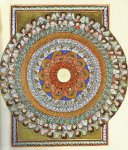



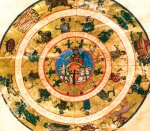
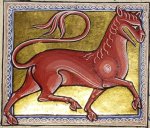
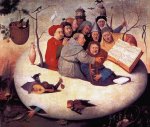
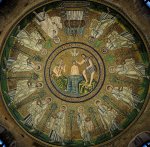
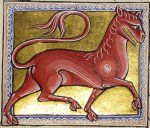



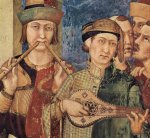


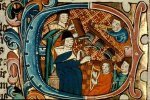

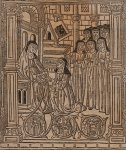
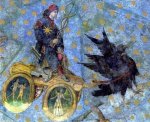


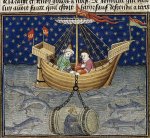
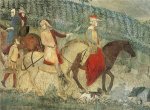
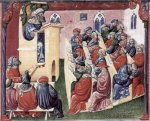
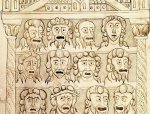
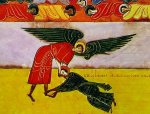
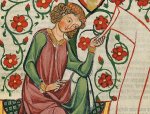
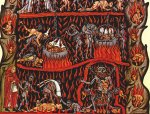

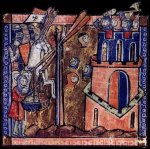
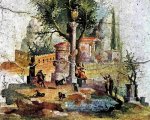
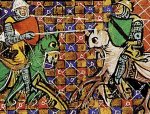
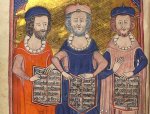
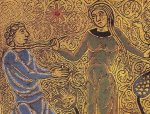
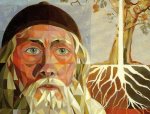
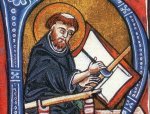
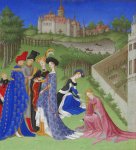
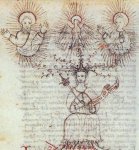
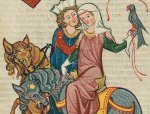





No comments:
Post a Comment